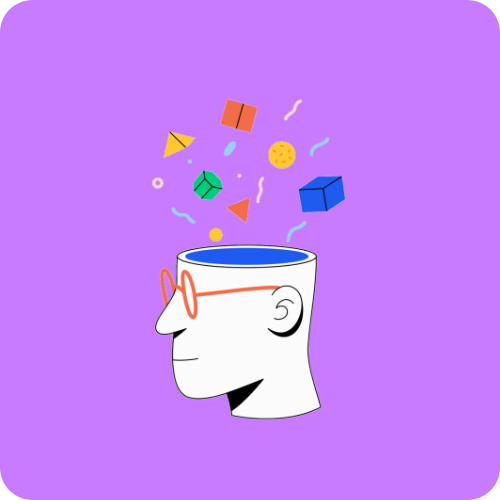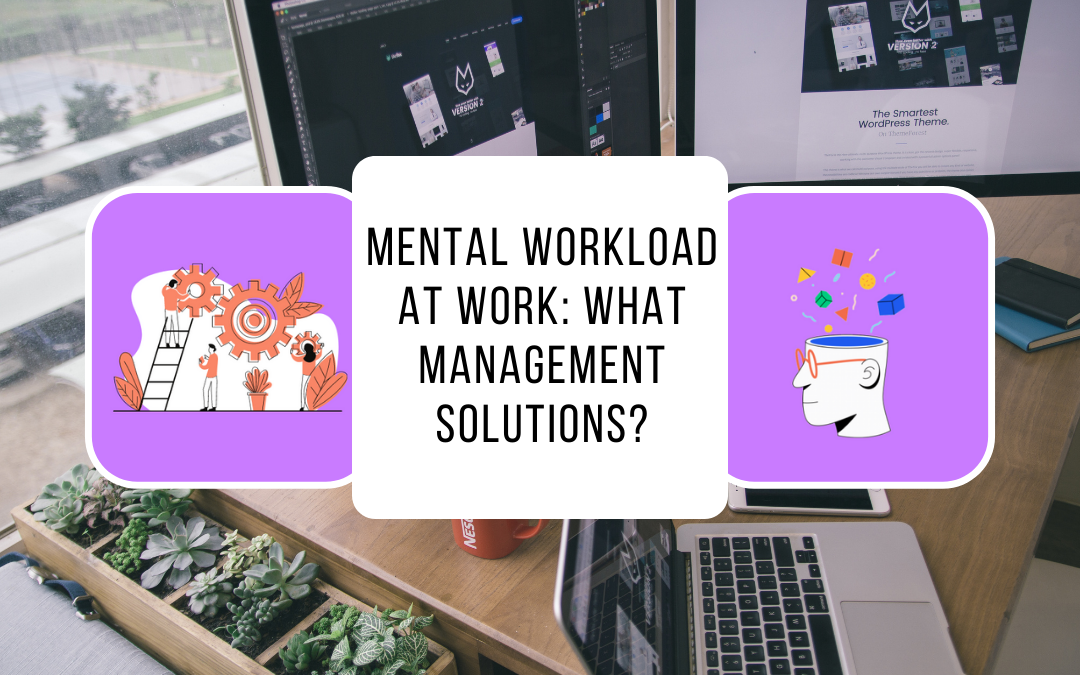The mental load at work is the result of psychological pressure and is one of the main causes of stress in the workplace. The workload affects all categories of employees. It is expressed by a hypersollicitation of the managers which can weaken the professional and personal life of an individual. One of the consequences of this overwork is not being able to manage one’s emotions properly at work and in front of colleagues. Moreover, with the health crisis linked to Covid-19, teleworking has amplified the pressure of management on employees working from home. Especially since companies have had to reinvent themselves with this new way of working. Many of them found themselves with a tenfold increase in the number of issues they had to deal with. As a result, managers’ responsibilities have increased on multiple fronts, resulting in a domino effect of workload on teams.
Understanding the causes of mental workload at work
Mental workload is generated by interactions between individuals, whether they are organizational or social. It is materialized by the quantity and complexity of information to be managed, processed according to our emotional state and the time we have to examine it. When one of the above parameters is no longer manageable, the mental load becomes a constraint. We also talk about an inequality between the objectives to be reached and the means implemented, a permanent over-investment which causes professional overwork.
Work ends up invading personal life, to the point where disconnection from work is no longer possible. However, mental workload can be a source of motivation and productivity when it is intelligently shared and optimized in a team. However, mental workload is often perceived as dangerous, as it can damage the health of employees when it becomes too intense to bear. It can be temporary or permanent.
Indeed, the lack of regulation of the workload and the operation of an understaffed department can have negative repercussions on the mental state of employees in the short and medium term. This is why a company that is committed to preventing the mental and physical health of its employees must have a clear understanding of the mental load at work. It must also be aware that this is an essential notion within an organization.

A tool to reduce mental workload at work?

Risks related to mental overload
The impact of work overload on health can manifest itself differently depending on the individual. The factors that make this possible are not necessarily immediately obvious. However, the repetition of certain behavior or phenomena should alert the management team. It is a decrease in vigilance at the level of the tasks, the repetition of basic errors, irritability or instability, etc.
- In terms of decreased performance, the employee is less effective. He may even become careless in organizing and managing his daily tasks;
- He repeatedly makes mistakes. The repetition of even small mistakes is a sign of an existing problem that the manager should deal with urgently;
- The consequences of overwork also take a toll on the body. The existence of physical signs such as fatigue, weight loss are really indications of the fragility of the health of the employee in question;
- Mood instability is a sign of a real problem: irritability or susceptibility to the slightest remark, unpleasant behavior towards the professional environment, etc.
To summarize, the state of burnout or burn-out generates a psychological syndrome on three levels:
- emotional exhaustion;
- depersonalization or insensitivity to others;
Decreased self-actualization (feeling of incompetence in the work).
Solutions to balance the workload
The solutions for mental workload at work include several levels of adjustment related to team management. Delegating some of the responsibilities is one of the most effective ways to reduce workload and regain a healthy work-life balance. Moreover, the ability to delegate is also a recognition of the expertise of other employees and a sign of trust.
Some specialists also talk about the ability to recognize suffering due to work overload. This awareness allows us to recognize the urgency of the situation and the rapid need to implement appropriate solutions. It is possible to use new technologies to lighten the workload through organizational tools.
Moreover, the success of your work must pass by an organization of the tasks with a feasible planning. This also implies setting physical and temporal limits. A tool like Perfony fits perfectly in this approach.
Do not work during lunch break, do not extend your working day, take breaks, do not check your professional emails at home: these reflexes help you feel better and therefore increase your productivity. The solutions to reduce the workload consist in rediscovering the satisfaction produced by a successful and efficient work.

